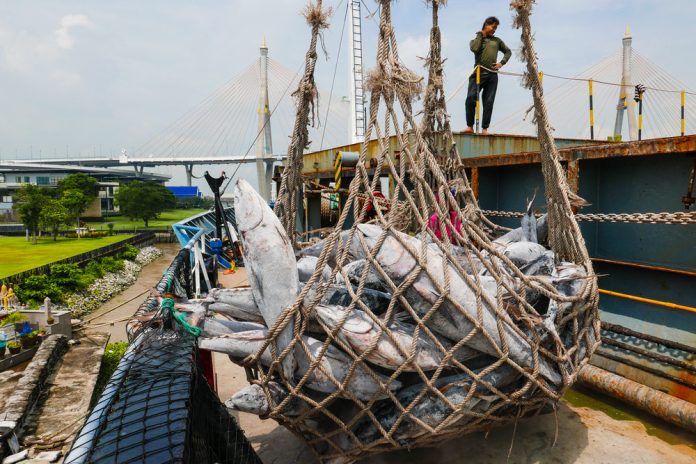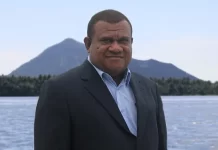By Francisco Blaha
The public perception of fisheries tends to focus on operations—boats, weather, accidents, overfishing, illegal fishing. It can be difficult to focus much public attention on the good news side of Western and Central Pacific tuna fisheries, and the fact that the four main stocks of tuna are healthy and sustainably harvested.
While it’s true that the operational side of catching fish is the “engine” of the fishery, the “wheelhouse” where the big decisions are made is an annual routine of a well lined up series of meetings on various topics among the members of the regional fisheries organisations that build up to the three big Western and Central Pacific Fisheries Commission (WCPFC) meetings.
Here the regional organisations—the Pacific Islands Forum Fisheries Agency (FFA), the Pacific Community (SPC) and the Parties to the Nauru Agreement (PNA)—and all WCPFC members get together to decide how the fisheries will be run. The Pacific Islands and the distant-water fishing nations meet at the WCPFC’s Scientific Committee (SC) in September, and at the Technical and Compliance Committee (TCC) in October. These committees discuss, macerate and agree (or not) on specific topics in their areas of expertise in the overall management of the fishery and then develop positions to take to the annual meeting, the regular session of the Commission. This is held in December and is where all the big decisions in the form of conservation and management measures, or CMMs—the rules! — get argued, negotiated, and eventually decided on.
It is at these meetings that policies get formulated, advice is provided and discussed, scenarios evaluated, and so on. For the Pacific Island members of FFA, this has traditionally taken place along culturally established sit-downs, negotiating agreements, face-to-face discussions, and trust-based consensus building and, being the Pacific, all is well framed by sharing food, drink and stories.
However, with the onset of COVID-19, the well-oiled routine that was built up over many years has been challenged. The restrictions on travel resulted in an early reshuffle in the process, and for the last two years all the meetings have been virtual and the simple fact is that we all needed to learn a new way to do things without much preparation and with very variable quality of internet. These can make the meetings very frustrating, even though all of the issues to be discussed and backgrounding documents are open to everyone to see on the WCPFC website.
In any case, all delegations come to the Commission meeting with some topics that are central to their interests. As the “owners” of the waters in the region, the Pacific Island members of FFA and PNA manage a preparation process to ensure that they come to each meeting agenda item well versed in the subject matter, and ready to engage in coordinated debate to ensure their views are well heard.
For the next meeting, the FFA members’ position on key matters for WCPFC18 presents the condensed results of a serious process of consultation by all members at various plenaries. This is not a long paper, but it establishes the key matters for the consideration of WCPFC members. It is really worth reading it in its entirety. In the meantime, the main subjects are mentioned here.
Tropical tuna measures crucial for fish numbers and island economies
The tropical tuna measure (TTM) is the CMM that establish the mechanisms and fishing limits for the tropical tunas (bigeye, skipjack and yellowfin). It is quite monstrous and deals with complex technical and management parameters that range from the spawning biomass depletion ratio (SB/SBF=0), to target reference points, to the closure of fish-aggregating devices (FADs), to management conditions, controls on fishing effort in the high seas, and the use of biodegradable FAD materials, to name just a few.
As FFA members have continued to highlight throughout this year, Pacific Island economies are dependent on the tuna fishery and we cannot support actions that will jeopardise the stocks that we rely upon.
FFA members attach high priority to maintaining the current careful balance of interests between fisheries and CCMs. (CCMs are the members, cooperating non-members and participating territories of the WCPFC.) This has been achieved after a lengthy period of careful and considered development. If there are to be changes within the CMM, that balance needs to be maintained. Additionally, we take the advice of the Scientific Committee very seriously and insist on a cautious approach to any changes to the existing measures.
FFA wants to cut the catch of South Pacific albacore
The latest stock assessment for South Pacific albacore suggests that the stock has continued to decline in recent years and that, without immediate cuts in catch and effort, the situation is going to get worse.
We notice a lot of long-liners moving from the tropical fishery to albacore catches in the southern high seas waters.
In light of these factors, FFA members call for WCPFC18 to agree to an immediate freeze in catch and effort for albacore by vessels operating on the high seas south of the equator. This would help to avoid further declines in the stock while work continues on a revised CMM for it.
Refocus to make sure compliance monitoring meets it purpose
FFA members have expressed significant concerns about the operation of the Compliance Monitoring Scheme (CMS) for some years. The CMS is the system by which compliance to the agreed measures is evaluated by all members of the WCPFC. Pacific Island concerns are that:
There is an imbalance in the operation of the CMS between purse seine and longline obligations. This arises from deficiencies in certain areas of the Commission’s management frameworks for these fisheries, particularly an unfair focus and scrutiny on fisheries and fleets with better monitoring and reporting.
There is a significant amount of time spent on the process each year.
There is a distortion of the CMS as a vehicle for prosecuting infringements by individual vessel rather than for its intended purpose, which is to identify gaps and failures in the implementation of CMMs and put in place steps to resolve those problems.
In this context, rather than investing further time in implementing the current measure, FFA members suggest that the WCPFC focuses its collective efforts on progressing the critical suite of future work that will ensure that the CMS will achieve the purpose, goals and principles that the Commission committed to.
CMM needed to make labour standards binding
The issue of crew safety, including poor working conditions, mistreatment of fishing crew and allegations of forced labour, has remained in the spotlight throughout 2021.
The development of a CMM on labour standards for fishing crew remains a priority for FFA members, as reflected by our active participation in the intersessional working group on labour standards. While FFA members recognise that a significant amount of work has been done to develop the CMM, some issues still need to be worked through.
We attach significant importance to improving the safety and working conditions of crew on board vessels fishing under the WCPF Convention. Crew play an integral role in the economic security of this region. We want to ensure the WCPFC treats this issue seriously, and FFA members are prepared to continue investing the time to do so throughout 2022.
The fact that these are the issues identified for 2021 does not meant that there is no pressure on issues that have been identified in previous years and have not been sufficiently advanced (due to COVID-19 or not). Among these are the review of the regime of high seas transhipment and further coverage of electronic monitoring and electronic reporting initiatives.
With all this in the table, it will be a busy agenda for everyone during the WCPFC18 meeting!.
SOURCE: TUNA PACIFIC/PACNEWS















